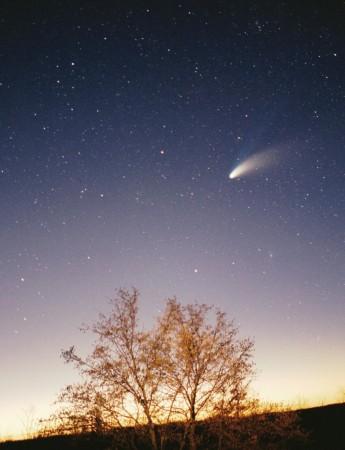Astronomers have been monitoring comet Atlas over the past few months, as experts speculated that this space body will travel all the way through the solar system due to the pulling force towards the sun. However, recent observations revealed that this comet has started falling apart, and it crushed the hope of taking a close look at this space body as it passed the earth.
New comet raises hope
Now, researchers have discovered another giant comet that will soon approach earth's orbit. Researchers have named this comet SWAN (C/2020 F8), and it was discovered on April 11 by Michael Mattiazzo of Swan Hill, Victoria, Australia using the Solar and Heliospheric Observatory's (SOHO), SWAN instrument.

Initial analysis conducted on comet SWAN indicates that it is currently emitting a lot of hydrogen. Space experts also believe that this comet is now in outburst mode, and major eruptions have helped humans to discover this otherwise small space body.
"For SWAN to see a comet, it means the comet must be producing a fairly significant amount of hydrogen. This is usually in the form of water-ice. It's extremely likely that Comet SWAN is in 'outburst' mode. That is, some major eruption happened to this otherwise small and faint comet, releasing a massive cloud of hydrogen-rich volatiles. SWAN is picking up on this sudden dump of hydrogen into the inner solar system," said Karl Battams, an expert at Naval Research Lab in Washington DC told Space Weather.
Is comet SWAN visible to humans?
If the outburst of comet SWAN continues at this rate, then this space body will become visible to the naked eye by next month. However, space experts believe that this scenario is very unlikely, as the comet may fade away in the coming days.
"I doubt that the comet will maintain its current impressive appearance, and will quite possibly fade away soon. But we've only been viewing it for a couple of days, so no one knows," added Battams.

















